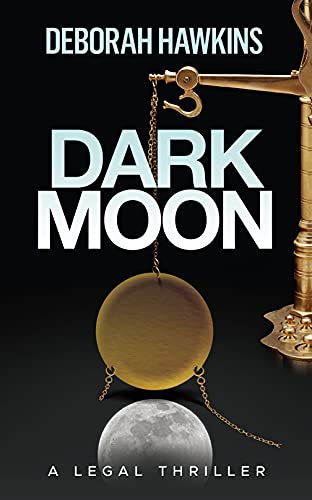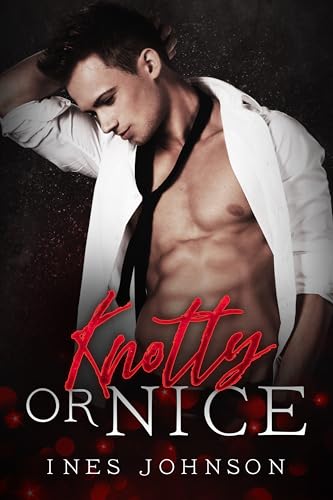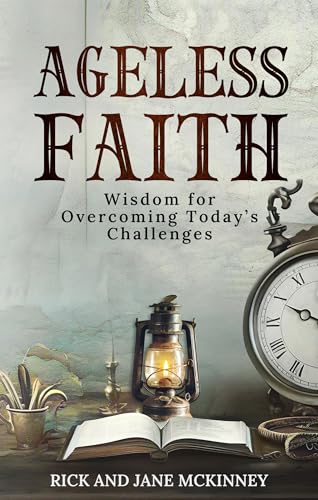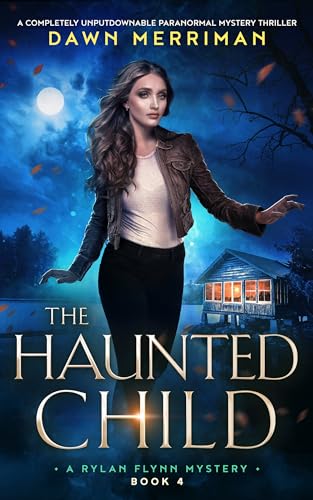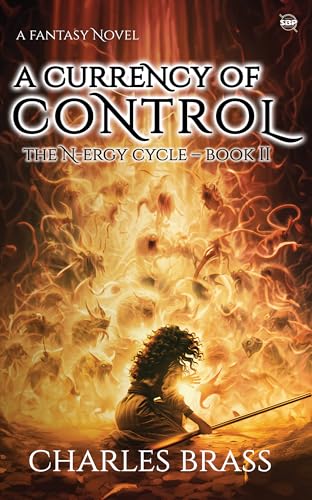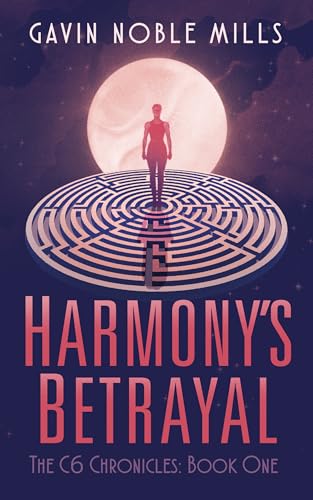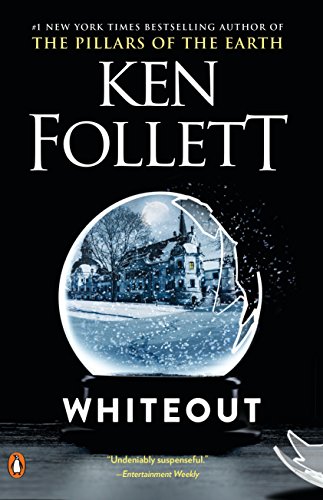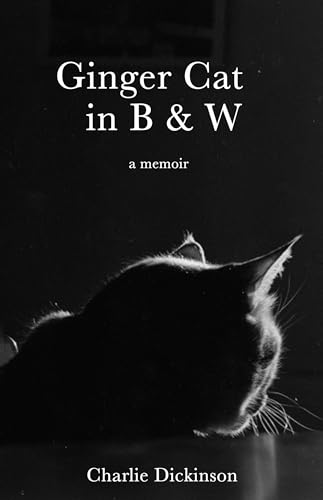On Friday we announced that Matthew Mather’s Cyberstorm is our Thriller of the Week and the sponsor of thousands of great bargains in the thriller, mystery, and suspense categories: over 200 free titles, over 600 quality 99-centers, and thousands more that you can read for free through the Kindle Lending Library if you have Amazon Prime!
Now we’re back to offer our weekly free Thriller excerpt:
CyberStorm
by Matthew Mather
And here, for your reading pleasure, is our free excerpt:
Prologue
PULLING MY GOGGLES up, I stopped and blinked, looking out into the night with my own unaided eyes. The night was pitch black and soundless, and my mind suddenly felt disconnected. Alone, staring into the void, I became a tiny dot of existence floating by itself in the universe. At first the feeling was terrifying, my mind reeling, but it quickly became comforting.
Maybe this is what death is like? Alone, peaceful, floating, floating, no fear—
Clipping the night-vision goggles back into place, ghostly green flakes of snow appeared falling gently around me.
My hunger pangs had been intense that morning, almost driving me to the point of going outside during the day. Chuck had held me back, talked to me, calmed me down. It wasn’t for me, I’d argued with him, it was for Luke, for Lauren, for Ellarose, for any reason that would allow me, like an addict, to get my fix.
I laughed.
I’m addicted to food.
The falling snowflakes were hypnotic. Closing my eyes, I took a deep breath.
What is real? What is reality anyway?
I felt like I was hallucinating, my mind never quite able to take a firm track before skidding off. Get a grip. Luke is counting on you. Lauren is counting on you.
Opening my eyes, I willed myself into the here and now and tapped the phone in my pocket to bring up the augmented-reality display. A field of red dots spread out into the distance, and, taking another deep breath, I began carefully putting one foot in front of the other, continuing on my way across Twenty-Fourth, pushing myself toward a cluster of dots on Sixth Avenue.
November 25
Chelsea, New York City
“WE LIVE IN amazing times!”
I carefully studied the piece of charred flesh that I held up in front of me.
“Amazingly dangerous times,” laughed Chuck, my next-door neighbor and best friend, taking a swig from his beer. “Nice work. That’s probably still frozen on the inside.”
Shaking my head, I put the burnt sausage down at the edge of the grill.
It was an unusually warm week for Thanksgiving, so I’d decided to throw a last-minute barbecue party on the rooftop terrace of our converted warehouse complex. Most of our neighbors were still here for the holiday, so my two-year-old son, Luke, and I had spent the morning going door-to-door, inviting them all up for our grill-out.
“Don’t insult my cooking, and don’t get started on all that.”
It was a spectacular end of the day, with the setting sun shining warmly. From our seven-story perch, beautiful late-autumn views of red and gold trees stretched up and down the Hudson, backed by street noise and city skyline. New York still held a vibrancy that excited me, even after two years of living there. I looked around at the crowd of our neighbors. We’d gathered a group of thirty people for our little party, and I was secretly proud so many had come.
“So you don’t think it’s possible a solar flare could wreck the world?” said Chuck, raising his eyebrows.
His Southern twang made even disasters sound like song lyrics, and kicking back on a sun lounger in ripped jeans and a Ramones T-shirt, he looked like a rock star. His hazel eyes twinkled playfully from beneath a mop of unkempt blond hair, and two-day-old stubble completed the look.
“That’s exactly what I don’t want you to get started on.”
“I’m just saying—”
“What you’re saying always points to disaster.” I rolled my eyes. “We’ve just lived through one of the most amazing transitions in human history.”
Poking the sausages on the grill, I generated a new round of searing flames that leapt up.
Tony, one of our doormen, was standing next to me, still dressed in his work clothes and tie, but at least with his suit jacket off. Heavyset, with dark Italian features, he was as Brooklyn as the Dodgers of old, and his accent never let you forget it. Tony was the kind of guy that grew on you immediately, always ready to help, and never without a smile and a joke to go along with it.
Luke loved him too. From the moment he could walk, every time we went downstairs, Luke would go rocketing out of the elevator as soon as it pinged to ground level and run to the front desk to greet Tony with squeals of glee. The feelings were mutual.
Looking up from my sausages, I directly addressed Chuck. “Over a billion people have been born in the past decade—that’s like a new New York City each month for the last ten years—the fastest population growth that has ever been, or ever will be.”
I waved my tongs around impressively in the air to make my point.
“Sure there’ve been a few wars here and there, but nothing major. I think that says something about the human race.” I paused for effect. “We’re maturing.”
“That billion new people are still mostly sucking baby formula,” Chuck pointed out. “Wait fifteen years until they all want cars and washing machines. Then we’ll see how mature we are.”
“World poverty in real-dollar, per-capita terms is half what it was forty years ago—”
“And yet one in six Americans goes hungry, and the majority are malnourished,” interrupted Chuck.
“And for the first time in human history, just a year or two ago,” I continued, “most humans live in cities rather than the countryside.”
“You say that like it’s a good thing.”
Tony looked at me and Chuck and shook his head, taking a swig of his beer and smiling. This was a well-worn sparring match he’d watched many times before.
“It is a good thing,” I pointed out. “Urban environments are way more energy efficient than rural ones.”
“Except urban is not an environment,” argued Chuck. “The environment is an environment. You talk as if cities were these self-supporting bubbles, and they’re not. They’re entirely dependent on the natural world around them.”
I pointed my tongs at him. “That same world we’re saving by living together in cities.”
Returning my attention to the barbecue, I saw that the fat dripping off the sausages had ignited into flames again and was searing my chicken breasts.
“I’m just saying that when it all comes undone—”
“When a terrorist launches a nuke over the US? An EMP pulse?” I asked as I rearranged my meats. “Or a weaponized superbug let loose in the wild?”
“Any of those,” nodded Chuck.
“You know what you should be worried about?”
“What?”
I didn’t need to give him anything new to be obsessed with, but I couldn’t help myself. I’d just finished reading an article about it.
“Cyberattack.”
Looking over his shoulder, I could see that my wife’s parents had arrived, and my stomach knotted up. What I wouldn’t have given to have a simple relationship with my in-laws, but then again, that was a boat most people were rowing with me.
“Ever heard of something called Night Dragon?” I asked.
Chuck and Tony shrugged.
“A few years back they started finding foreign computer code embedded in power plant control systems all over the country,” I explained. “They traced command and control back to office buildings in China. This stuff was specifically designed to knock out the US energy grid.”
Chuck looked at me, unimpressed. “So? What happened?”
“Nothing happened, yet, but your attitude is the problem. It’s everyone’s attitude. If Chinese nationals were running around the country attaching packs of C-4 explosives to transmission towers, the public would be crying bloody murder and declaring war.”
“Used to be that they dropped bombs to knock out factories, but now just click a mouse?”
“Exactly.”
“See?” said Chuck, smiling. “There’s a prepper in you after all.”
I laughed. “Answer me this—who’s in charge of the internet, this thing that our lives depend on?”
“I don’t know, the government?”
“The answer is that nobody is in charge of it. Everyone runs it, but nobody’s in charge.”
Chuck laughed. “Now that sounds like a recipe for disaster.”
“You guys are freaking me out,” said Tony, finally finding some space to add something. “Can’t we talk about baseball for once? And maybe you’d better let me take over the grilling?” The flames on the grill roared up again, and he recoiled in mock fear. “You got more important stuff to do, no?”
“And we’d like to eat some food that’s not burnt to a crisp,” added Chuck with a smile.
“Yeah, sure,” I replied without enthusiasm, nodding and handing the tongs over to Tony. I was hiding at the grill, trying to delay the inevitable. Glancing over my shoulder I could see my wife, Lauren, looking my way. She laughed as she talked to someone, brushing back her long, auburn hair with a sweep of one hand.
With high cheekbones and flashing green eyes, Lauren captured attention whenever she entered a room. She had the refined, strong features of her family, a sharp nose and chin that accentuated her slim figure. Even after being with her for five years, just looking at her from across a patio could still take my breath away—I still couldn’t believe that she chose me.
Taking a deep breath, I straightened up my shoulders.
“I leave the grill in your care,” I said to nobody in particular. They were already back to discussing Cybergeddon.
Taking a swig from my beer, I put it down on the table next to the grill and turned to walk over to Lauren. She was standing at the opposite corner of the large deck on top of our building, chatting with her parents and a few of our other neighbors. I’d insisted on hosting her mother and father for Thanksgiving this year, but was already regretting it.
Her family was old-money Bostonian, dyed-in-the-tweed Brahmins, and while early on I’d done my best to earn their good humor, lately I’d given up and settled into a grudging understanding that I’d never be good enough. But it didn’t mean I wasn’t polite.
“Mr. Seymour,” I called out, outstretching my hand, “thank you so much for coming.”
Dressed in a square-shouldered tweed jacket accented with a navy handkerchief, blue oxford shirt, and a brown paisley tie, Mr. Seymour looked up from talking with Lauren, and smiled a tight-lipped smile. I immediately felt self-conscious in my jeans and T-shirt. Covering the last few paces, I reached out to grip his hand and pumped it firmly.
“And, Mrs. Seymour, as lovely as ever,” I added, turning toward my wife’s mother. She was sitting uncomfortably on a wooden bench beside her husband and daughter, dressed in a brown suit with a matching oversized hat and a thick strand of pearls around her neck. Clutching her purse tightly in her lap, she leaned forward as if to get up.
“No, no, please, don’t.” I leaned down to peck her on the cheek. She smiled and sat back down on the edge of the bench. “Thank you for coming to spend Thanksgiving with us.”
“So you’ll think about it?” Mr. Seymour said loudly to Lauren. You could almost make out the layers of ancestry in his voice, thick with both privilege and responsibility, and today, perhaps a little condescension. He was making sure I could hear what he said.
“Yes, Dad,” Lauren whispered, stealing a glance my way and looking down. “I will.”
I didn’t take the bait and ignored it.
“Have you been introduced to the Borodins?”
I motioned toward the elderly Russian couple that were sitting at the table beside them. Aleksandr, the husband, was already asleep in a lounger, snoring quietly away beside his wife, Irena, who was busy on her knitting.
The Borodins lived right next door to us. I’d sometimes spend hours listening to Mrs. Borodin’s stories of the war. They’d survived the siege of Leningrad, the modern St. Petersburg, and I found it fascinating how she could have lived through something so horrific yet be so positive and gentle with the world. She cooked amazing borscht, too.
“Lauren introduced us. A pleasure,” mumbled Mr. Seymour, smiling Mrs. Borodin’s way. She looked up and smiled back, and then returned to her pair of half-knitted socks.
“So,” I said, spreading my arms, “have you guys seen Luke yet?”
“No, he’s downstairs with Ellarose and the sitter at Chuck and Susie’s place,” replied Lauren. “We haven’t had a chance to go and see him yet.”
“But we’ve already been invited to the Met,” said Mrs. Seymour brightly, perking up. “Dress rehearsal tickets for the new Aida performance.”
“Oh yeah?”
I looked at Lauren and then turned toward Richard, another of our neighbors, who was definitely not on my favorites list.
“Thanks, Dick.”
Square-jawed and handsome, he’d been some kind of football star in his Yale days. His wife, Sarah, was a tiny thing, and she sat behind him like a hand-shy puppy. She quickly pulled the cuffs of her sweater down to cover her bare arms when I glanced at her.
“I know the Seymours love the opera,” explained Richard in his thick-money accent, like a Manhattan stock broker describing an investment option. Where the Seymours were Old Boston, Richard’s family was Old New York. “We have the ‘friends and family’ seating at the Met. I only have four tickets, and Sarah didn’t want to go”—his wife shrugged weakly behind him—“and I didn’t mean to presume, but I didn’t think it was your kind of thing, old boy. I thought I could take Lauren and the Seymours, a little Thanksgiving treat?”
While Mr. Seymour’s accent sounded genuine, Richard’s faux-British-prep-school affectation grated on my ears.
“I guess.”
What the hell is he up to?
Awkward pause.
“We need to get going if we’re going to make it,” added Richard, raising his eyebrows. “It’s an early rehearsal.”
“But we were just about to start serving,” I said, pointing back toward the checker-clothed tables set with bowls of potato salad and paper plates. Tony smiled and waved at me with the tongs while he piled burnt sausage and chicken atop a serving tray.
“That’s all right, we’ll stop for something,” said Mr. Seymour, again with his tight-lipped smile. “Richard was just telling us about a wonderful new bistro on the Upper East Side.”
“It was just an idea,” added Lauren uncomfortably. “We were talking and Richard mentioned it.”
I took a deep breath, balling my hands into fists, but caught myself and sighed. My hands relaxed. Family was family, and I wanted Lauren to be happy. Maybe this would help. I rubbed one eye and exhaled slowly.
“That’s actually a great idea.” I looked toward my wife with a genuine smile and felt her relax. “I’ll take care of Luke, so don’t hurry back. Enjoy yourselves.”
“Are you sure?” asked Lauren.
An inch of gratitude propped our relationship back up.
“I’m sure. I’ll just grab a few beers with the boys.” On reflection, this was sounding like a better and better idea. “You best get going. Maybe we can meet for a nightcap?”
“It’s settled then?” said Mr. Seymour.
Within a few minutes they were gone and I was back with the guys, piling my plate with sausages and rooting around in the cooler for a beer.
I slumped down in a chair.
Chuck looked at me with a forkful of potato salad halfway into his mouth. “That’s what you get for marrying a girl with a name like Lauren Seymour.”
I laughed and cracked my beer open. “So what’s the word regarding this mess between China and India over those dams in the Himalayas?”
November 27
THE FAMILY VISIT didn’t go well.
Thanksgiving dinner started the disaster rolling, first because we ordered a precooked turkey from Chelsea Market—“Oh my, you don’t cook your own turkey?”—and then the awkward dinner seating around our kitchen countertop—“When are you buying a bigger apartment?”—with the finale of me not being able to watch the Steelers game—“That’s fine, if Michael wants to watch football, we’ll just make our way back to the hotel.”
Richard had gracefully invited us down the hall for after-dinner drinks, to their palatial three-story apartment that faced the Manhattan skyline, where we were served hand and foot by his wife, Sarah—“Of course we cooked our own turkey. Didn’t you?”
The conversation had quickly centered on connections between the old New York and Boston family lines: “Fascinating, isn’t it? Richard, you must be almost a third cousin to our Lauren,” quickly followed by, “Mike, do you know any of your own family history?”
I did, and it involved steel working and nightclubs, so I said I didn’t.
Mr. Seymour finished off the evening with an interrogation of Lauren about her new job prospects, which were nonexistent. Richard was helpful with many suggestions about introductions he could make for her. They’d politely asked me how my business was going, followed by proclamations that the internet was just too complicated to even talk about, and then: “Now, Richard, how is your family investment trust being managed?”
To be fair, Lauren did defend me, and everything remained civilized.
I spent most of the time chauffeuring them around to meet their friends at places like the Metropolitan Club, the Core Club, and of course, the Harvard Club. The Seymours had the distinction of having at least one member of each generation of their family attend Harvard since its foundation, and at the namesake club they were treated like visiting royalty.
Richard had even graciously invited us to the Yale Club for a drink on Friday night. I nearly throttled him. Mercifully, it was just a two-day visit, and finally we had the weekend to ourselves.
It was early Saturday morning, and I was sitting at our granite kitchen countertop feeding Luke, with him in his highchair and me balancing on a barstool while I watched the morning news on CNN. I was cutting apples and peaches up into little chunks and leaving them in front of him on a plate. In the height of merriment he was picking each piece up, smiling a toothy, gummy grin at me, and then either eating the fruit or squealing and throwing it on the floor for Gorby, the Borodins’ rescue dog mongrel.
It was a game that just didn’t get old. Gorby spent nearly as much time in our apartment as he did at home with Irena, and watching Luke throw food down to him, it wasn’t hard to understand why. I wanted our own dog, but Lauren was against it. Too much hair, she said.
Banging his fists on the tray, Luke squeaked, “Da!” his universal word for anything involving me, and then outstretched his small hand—more apple please.
I shook my head, laughing, and reached over to begin cutting up some more fruit.
Luke was just two years old, but he had the heft of a three-year-old, something he probably got from his dad, I thought with a smile. Wisps of golden-blond hair floated about his chubby cheeks that always glowed warmly. His face was permanently stuck in a mischievous grin, showing a mouthful of white button teeth, as if he was about to do something he knew he wasn’t supposed to—which was almost always the case.
Lauren appeared out of our bedroom, her eyes still half-closed from sleep.
“I don’t feel well,” she said unsteadily and then stumbled into our small bathroom, the only other closed room in our less-than-thousand-square-foot, loft-style apartment. I heard her coughing loudly and then the sound of the shower turning on.
“Coffee’s on,” I muttered, thinking, she didn’t drink that much last night, while I watched some enraged Chinese students in the city of Taiyuan burning American flags. I’d never heard of Taiyuan, so while I dropped some more fruit chunks in front of Luke with one hand, I queried my tablet with the other.
Wikipedia: Taiyun (Chinese: pinyin: Tàiyuán) is the capital and largest city of Shanxi province in North China. At the 2010 census, it had a population of 4,201,591.
Wow.
That was bigger than Los Angeles, America’s second largest city, and Taiyun was China’s twentieth. With a few more keystrokes I discovered that China had over 160 cities with populations over a million, where the United States had exactly nine.
I looked up from my tablet at the news. The image on the TV had switched to an aerial view of a strange-looking aircraft carrier. An anchor on CNN described the scene, “Here we see China’s first, and so far only, aircraft carrier, the Liaoning, ringed by a pack of angry-looking Lanzhou-class destroyers as they face off with the USS George Washington just outside the Straits of Luzon in the South China Sea.”
“Sorry about my parents, honey,” whispered Lauren as she snuck up behind me, mopping her hair with a towel and dressed in a white terry cloth bathrobe. “Remember, it was your idea.”
She leaned down and cuddled Luke, kissing him while he smiled and squeaked his pleasure at such attention, and then she wrapped her arms around me tightly and kissed my neck.
I smiled and nuzzled her back, enjoying the affection after a tense couple of days.
“I know.”
A US naval officer had appeared on CNN. “Not five years ago Japan was telling us to get our boys out of Okinawa, but now they’re begging for help again. Japs have a fleet of their own aircraft carriers coming down here, why on Earth—”
“I love you, baby.” Lauren had slipped one of her hands under my T-shirt and was stroking my chest.
“I love you too.”
“Have you thought more about going to Hawaii for Christmas?”
“—and Bangladesh will be hit hard if China diverts the Brahmaputra. They need friends now more than ever, but I never imagined the Seventh Fleet parking itself in Chittagong—”
I sighed and pulled away from her.
“You know I’m not comfortable having your family pay.”
“So then let me pay.”
“With money that comes from your father.”
“Only because I’m not working because I quit my job to have Luke,” she said loudly. It was a sore point.
We’d completely pulled away from each other, and she turned to grab a cup from the cupboard and filled it with coffee. Black. No sugar this morning. She leaned against the stove and cupped her hands around the hot coffee, hunching inwards and away from me.
“—starting cyclic ops around the clock, constant launch and recovery missions from the three American aircraft carriers now stationed in—”
“It’s not just the money. I’m not comfortable spending Christmas there with your mother and father, and we did Thanksgiving with them.”
She ignored me. “I’d just finished articling at Latham and passing the bar”—she was speaking more to herself than to me—“and now everyone is downsizing. I threw the opportunity away.”
“You didn’t throw it away, honey,” I said softly, looking at Luke. “We’re all suffering. This new downturn is hard on everyone.”
In the silence between us, the CNN anchor started on a new topic. “Reports today of US government websites being hacked and defaced. With Chinese and American naval forces squaring off, tensions of conflict heighten. We go now to our correspondent at Fort Meade Cyber Command headquarters—”
“What about going to Pittsburgh? See my family?”
“—the Chinese are claiming the defacement of US government websites is the work of private citizen hacktivists, and most of the activity seems to be originating from Russian sources—”
“Seriously? You won’t take a free trip to Hawaii and you want me to go to Pittsburgh?” Now she looked angry. “Your brothers are both convicted criminals. I’m not sure I want to expose Luke to that kind of environment.”
I shrugged. “Come on, they were teenagers when that happened. We talked about this.”
She said nothing.
“Didn’t one of your cousins get arrested last summer?” I said defensively.
“Arrested,” she replied, shaking her head, “but not convicted. There is a difference.”
I paused and stared into her eyes. “Not all of us are so lucky to have an uncle who’s in Congress.”
Luke was watching the two of us.
“So,” I asked, my voice rising, “what was it your father wanted you to think about?”
I already knew it was some new offer to entice her back to Boston.
“What do you mean?”
“Really?”
She sighed and looked down into her coffee. “A partner-track position at Ropes and Gray.”
“I didn’t know you applied.”
“I didn’t—”
“I’m not moving to Boston, Lauren. I thought the whole idea of us coming here was for you to start your own life.”
“It was.”
“I thought we were trying for another one, a little brother or sister for Luke? Isn’t that what you wanted?”
“More what you wanted.”
I looked at her in disbelief, my vision of our future together unraveling in just one sentence. But there had been more than one uncomfortable sentence lately. My stomach knotted.
“I’m going to be thirty this year,” she added. “Opportunities like this don’t come often. It could be my last chance to have a career.”
Silence while we stared at each other.
“I’m going to the interview.”
“That’s all the discussion?” My heart began to race. “Why? What’s going on?”
“I just told you why.”
We stared at each other in a mutually accusatory silence. Luke began to fuss in his chair.
Lauren sighed, her shoulders sagging. “I don’t know, okay? I feel lost. I don’t want to talk about it right now.”
I relaxed, and my pulse began to slow a little.
Lauren looked at me. “I’m going for brunch with Richard to talk about some ideas he had for me.”
My pulse raced again, my cheeks flushing.
“I think he beats Sarah.”
Her eyes flashed angrily. “Why would you say something like that?”
“Did you see her arms at the barbecue? She was covering up. I saw bruises.”
Shaking her head, she snorted, “You’re being jealous. Don’t be ridiculous.”
“What should I be jealous of?” I shot back angrily.
Luke began to cry.
“I’m going to get dressed,” she said dismissively, shaking her head. “Don’t ask stupid questions. You know what I mean.”
Ignoring me, she leaned down and kissed Luke, whispering that she was sorry, she didn’t mean to yell, and that she loved him. Once she’d calmed Luke down, she gave me an evil look and stalked off into the bedroom, closing the door heavily behind her.
Sighing, I turned toward Luke and picked him up. I eased his head onto my shoulder and began to pat his back softly.
“Why did she marry me, huh, Luke?” I whispered under my breath.
I answered my own question.
“Ah, yes, well, we’ve got you, don’t we, big bruiser?”
With two or three sniffling sighs, I felt his little body relax into me. “Come on. Let’s take you over to see Ellarose and Auntie Susie.”

